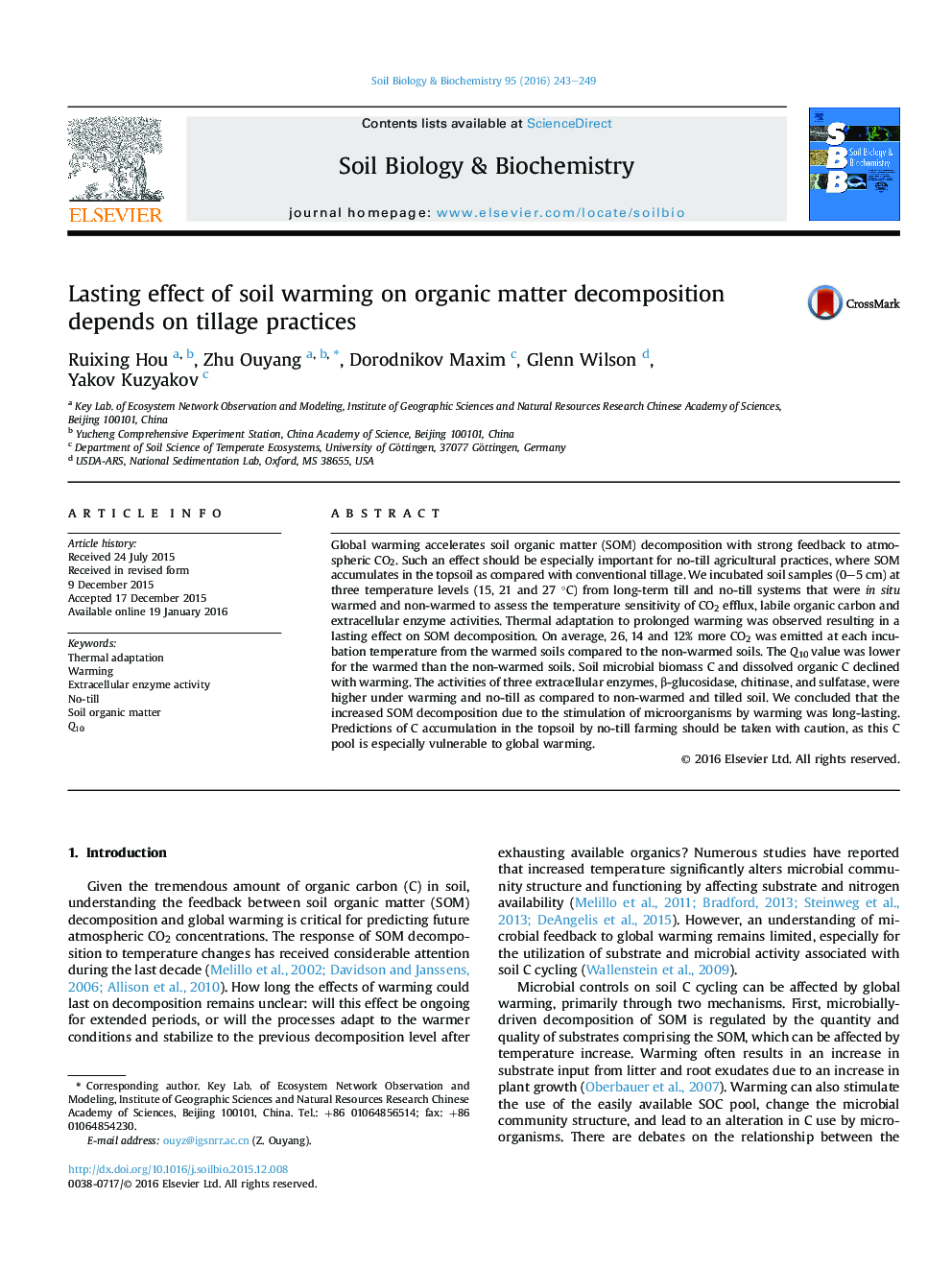| Article ID | Journal | Published Year | Pages | File Type |
|---|---|---|---|---|
| 2024284 | Soil Biology and Biochemistry | 2016 | 7 Pages |
•Lasting positive effects of warming on SOM decomposition.•More labile carbon depletion under warmed soil.•Long-term warming increased extracellular enzyme activity.•SOM decomposition is more sensitive to warming under no-till than tilled soil.
Global warming accelerates soil organic matter (SOM) decomposition with strong feedback to atmospheric CO2. Such an effect should be especially important for no-till agricultural practices, where SOM accumulates in the topsoil as compared with conventional tillage. We incubated soil samples (0–5 cm) at three temperature levels (15, 21 and 27 °C) from long-term till and no-till systems that were in situ warmed and non-warmed to assess the temperature sensitivity of CO2 efflux, labile organic carbon and extracellular enzyme activities. Thermal adaptation to prolonged warming was observed resulting in a lasting effect on SOM decomposition. On average, 26, 14 and 12% more CO2 was emitted at each incubation temperature from the warmed soils compared to the non-warmed soils. The Q10 value was lower for the warmed than the non-warmed soils. Soil microbial biomass C and dissolved organic C declined with warming. The activities of three extracellular enzymes, β-glucosidase, chitinase, and sulfatase, were higher under warming and no-till as compared to non-warmed and tilled soil. We concluded that the increased SOM decomposition due to the stimulation of microorganisms by warming was long-lasting. Predictions of C accumulation in the topsoil by no-till farming should be taken with caution, as this C pool is especially vulnerable to global warming.
